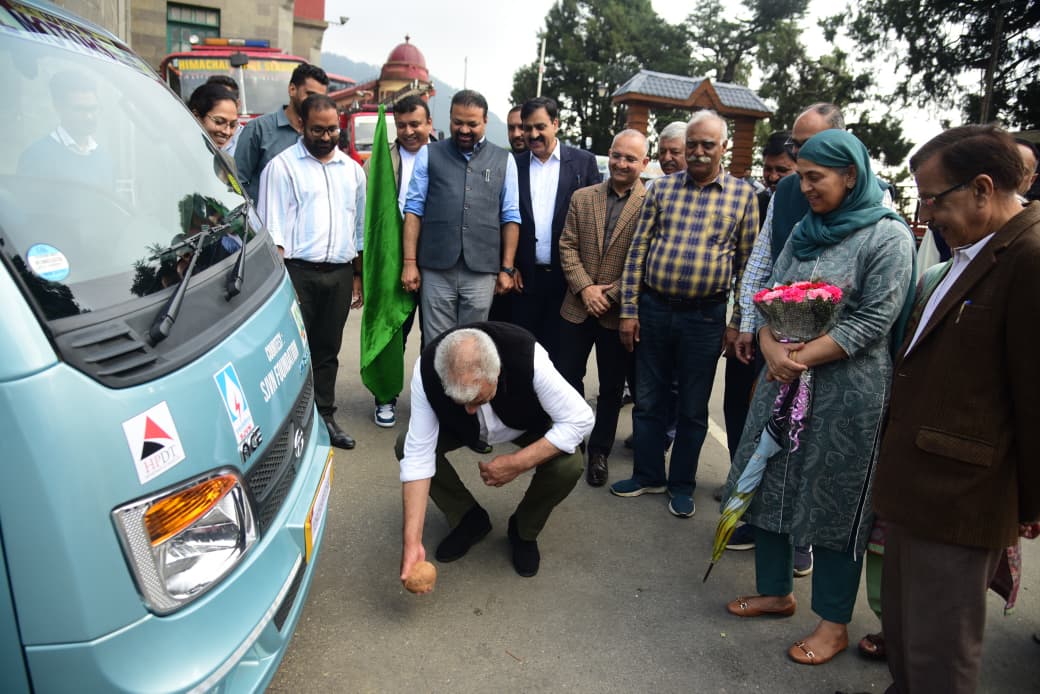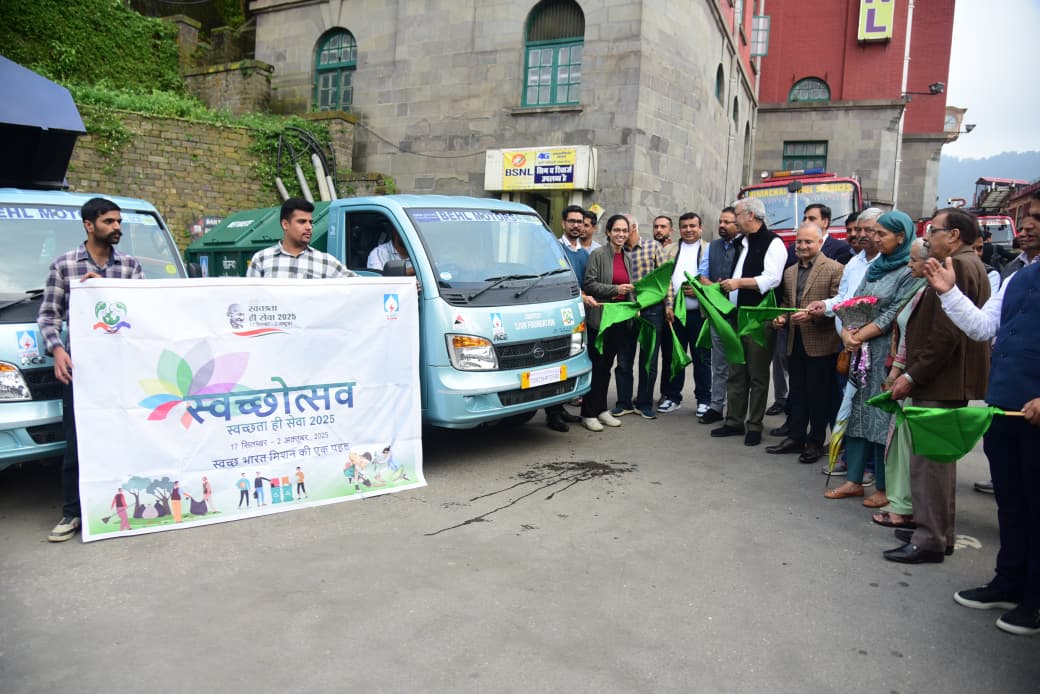Innovation in Municipal Finance: ICLEI South Asia leverages CSR fund to electrify Shimla’s SWM

In an innovative leap for urban services financing, Shimla Municipal Corporation (SMC) has inducted two electric solid waste collection vehicles, the first of their kind in Himachal Pradesh’s solid waste management (SWM) fleet, through a Corporate Social Responsibility (CSR) funding with Satluj Jal Vidyut Nigam (SJVN) Limited. This is structured in collaboration with ICLEI South Asia and supported by SJVN Limited. The vehicles were inaugurated in the presence of Hon’ble Harish Janartha, MLA, Shimla; Bhupendra Atri, Commissioner, MC Shimla; SJVN Director personnel Ajay Sharma, and the CSR team on 19 September 2025 in Shimla.
ICLEI South Asia has played a pivotal role in bridging the gap between innovative climate finance mechanisms and local government capacity. This pilot project marks a step toward climate-smart municipal services in a hill city context. ICLEI South Asia has been providing technical, policy, and on-ground support to the Himachal Pradesh government in advancing e-mobility across the state. Under this initiative, ICLEI South Asia has played a key role in the rollout of solid waste management EVs by providing technical support to the Municipal Corporation in accessing CSR funds and support across project design, financing, and implementation. As a knowledge partner, ICLEI South Asia delivered a strategic shift through a tangible demonstration of how emerging clean technologies can replace conventional practices in resource-constrained and topographically complex settings.
The introduction of two electric SWM collection vehicles demonstrates targeted technology adoption in a core urban service. Beyond immediate operations, the pair will serve as a live pilot to generate the operational evidence needed to scale electrification across the larger SWM fleet. They will demonstrate detailed design and impact pathway, and help determine the replicability of this approach for other Urban Local Bodies (ULBs) across India.
Extending support to the initiative, Bhupendra Atri, Commissioner, Shimla Municipal Corporation, said, “We would like to gradually transition our SWM fleet to electric.”
Hill cities like Shimla have long relied on conventional diesel SWM fleet, which adds to greenhouse gas emissions and fuel costs, is disruptive on steep gradients and narrow streets, and adds to noise pollution. This emphasizes the need for low-emission service delivery at the municipal level.
This initiative underscores that long-term gains are possible for the urban services sector, showcasing how small pilots can drive systemic change. By tapping CSR funds, Shimla has opened a pathway for municipal corporations and ULBs across India to explore EV adoption in core services. With 15 SWM vehicles nearing phase-out due to age limits in the city, the pilot offers a timely opportunity; it will generate reliable evidence-driven data to support a fleet-wide electrification plan, ensuring phased vehicles are replaced with cleaner, more efficient alternatives for scaling up.
These vehicles will continue to be used regularly. As next steps, there will be a gradual transition from other end-of-life vehicles by scrapping of old transport and replacing them with EV vehicles.

